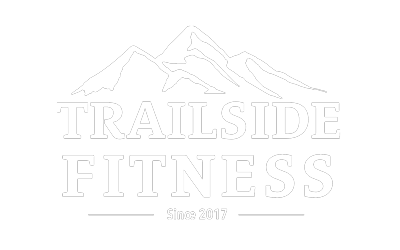“No Pain, No Gain” Mentality Can End Your Hike
How can the no pain, no gain mentality end your hike? Excellent question. Your body is quite complex and science is still sorting out just how pain and other systems work. With a lot of chronic injuries the level of stress and strain to the tissue (bone, tendon, cartilage, ligaments) is low for a long time. Over time, that stress and strain degrades the quality of that tissue.
It’s such a slow process your mind and body are able to compensate around the problem. Often, there’s no indication to you. That is both a good thing and bad thing. But that’s what the body does best. It works to keep you moving forward even in the face of injuries, imbalances and many other issues. Your mind is filtering and prioritizing information constantly and these compensations don’t always register with the conscious. You’d likely be run over with input and information overload if it did.
Pain or discomfort, what’s the difference?
Pain is what’s referred to as a lagging indicator. Meaning, the body will cover up these small low grade stresses and strains to keep you moving forward. As that stress and strain intensifies over time, you will start to notice some indication that something is afoot. It is a signal that you need to investigate. Here’s why: if you ignore that little ache or pain, it can quickly become a much bigger and more significant problem. One that can end your hike prematurely.
The no pain no gain mindset infers that you must deal with some level of pain or discomfort during your to hike. Unfortunately, that mentality can end your hike too soon.
We need to reframe that mindset.
Hiking at times can be physically uncomfortable and make your muscles sore. You are hiking uphill & downhill, in the heat or cold, lugging an extra 20-35 pounds strapped to your back after all. That type of discomfort is to be expected with this type physical activity. That is NOT pain. That is discomfort.
Pain is sharp, stabbing, burning, or electric type sensations that may require you altering your style of movement. Limping is not normal and pain with each step is not normal.
Discomfort is none of those things. Rather, discomfort is brought on by environmental factors, lack of fitness or the wrong mindset.
When an ache become a real pain
Most of us have small aches and pains and we just kind of deal with it or we ignore it. And maybe that works for a little while until the pain builds up to the point where it’s un-ignorable and you have to address it. At the point you are no longer able to rationalize it being “nothing”, it may be too late. The time for action is when you first register an ache or pain.
Now the ache or pain gotten to the point that your body is throwing up a warning flag to you saying “hey there’s something going on I need you to take a look at.†This is an important juncture for you.
If you decide to address it, which you absolutely should, it means you lower your risk of injury. You need to take responsibility for your success and your wellbeing at all times. Addressing the problem allows you to sort out the cause and remedy it before it becomes a bigger problem. Thinking critically, use massage, rest, and stretching along with seeking medical help. Think about the physical demands of your hike, are you outside of your abilities? Investigate gear issues as a possible cause.
End your hike early if you ignore the signals
If you continue to ignore that signal, your body will ultimately win. Every. Time. This isn’t meant to be a fear based post, just in an informative one. If you decide that things aren’t that bad and that you are simply adjusting to the trail, that’s not taking responsibility for your body or your hike.
Your body will continue to degrade and wear down tissues which leads to more serious injuries. Issues like bone spurs, stress fractures, tendon issues, and maybe even meniscus tears. This means more lost time to recover and possibly ending your hike all together.


Recent Comments